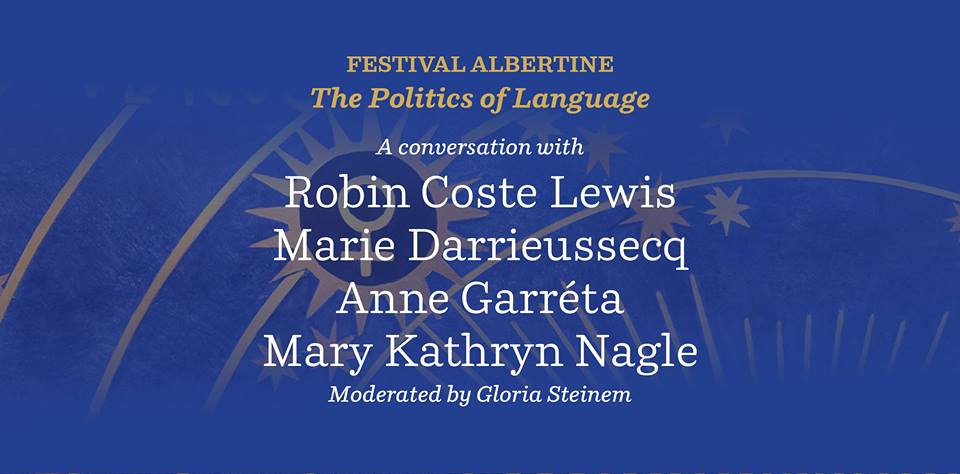The Politics of Language

Language can reveal, conceal, and even define reality. This becomes all the more evident in both media and literature, where language frames and creates imagery that becomes the basis for actions, attitudes, and opinions. Words assign labels, identities and value—negative and positive alike. Saying “prostituted woman” makes the woman visible as more than a “prostitute,” and an “enslaved man” is more than just a “slave.”
Now that we are beginning to liberate our language from the divisions of gender and race, we also may take heart from, say, Cherokee and other Native American languages—like such pre-patriarchal languages in Asia or in Africa—that have no gendered pronouns like “he” or “she,” and no words for nature, since humans are part of nature. As philosopher Suzanne K. Langer wrote, “The notion of giving something a name is the vastest generative idea that was ever conceived.” This panel will question old limits, and suggest words for new freedoms.
This event is part of Festival Albertine 2017. All events are free and open to the public. Seating is limited and available on a first come, first served basis.
Robin Coste Lewis, winner of the National Book Award for Voyage of the Sable Venus, is the poet laureate of Los Angeles. She is writer-in-residence at the University of Southern California, a Cave Canem fellow, and a fellow of the Los Angeles Institute for the Humanities. She received her PhD from the University of Southern California.
Marie Darrieussecq, born in 1969 in Basque Country, France, Europe. Graduated (Phd) from the Ecole Normale Superieure. Writer and psychoanalyst. A mother of 3 young children, she lives mainly in Paris. She’s the author of twelve novels, a number of short stories and a play. She writes in art magazines in London and Paris, and in Charlie Hebdo. Her work is translated in many coutries, her first novel Pig Tales (1996) was published in 45 countries. She won the Prix Médicis in 2013.
Anne Garréta is a French novelist, one of the few female members of the OuLiPo literary movement, and an occasional DJ. Her first novel, Sphynx, a love story, was written without the use of any gender markers. Garréta rejects the traditional representations of genders that are embedded in our social codes.
Mary Kathryn Nagle is an enrolled citizen of the Cherokee Nation. She serves as the Executive Director of the Yale Indigenous Performing Arts Program and is a partner at Pipestem Law, P.C., where she works to protect tribal sovereignty and women and children from violence and sexual assault. Nagle has authored briefs in federal appellate courts, including the U.S. Supreme Court.
Gloria Steinem is a writer, lecturer, political activist, and feminist organizer, and frequent media spokeswoman on issues of equality. She is particularly interested in the shared origins of sex and race caste systems, gender roles and child abuse as roots of violence, non-violent conflict resolution, the cultures of indigenous peoples, and organizing across boundaries for peace and justice.
Watch this event live via Livestream on Nov. 4 at 5pm (EST).
Festival Albertine is made possible with major support from The Recanati-Kaplan Foundation, Susannah Hunnewell, Van Cleef & Arpels, Air France, Fondation CHANEL, and Institut français. Generous support is provided by Champagne Pommery and Intercontinental New York Barclay.
Media Partner:


